As I write this, people who have trained their entire lives are about to have their fates decided by mere seconds of performance at the Olympics. And likely, whether or not they win, 4 out of 5 of them are about to go into depression, as Michael Phelps was brave enough to talk about in his documentary, “The Weight of Gold.
The athletes Stephen Scherer, Jeret Peterson, and Kelly Catlin all made it to the Olympics. They all died by suicide.
Amy Winehouse, Anthony Bourdain, Sylvia Plath, all won a kind of societal gold medal. And still.
The Olympics, the height of achievement culture, is a great time to talk about the fact that success and well-being are two entirely different things. I wanted to make sure you knew.
What is success?
Success, to me, is like money. It’s fun. It can create pleasurable experiences. You really feel it if you have none of it, you get used to how much you have, no matter what you have, and eventually you realize, if you traded what really matters for it — if you let your health decline, if you abandon relationships, if your discipline starts to turn into years-long self-flagellation — that it wasn’t worth it.
Finding a healthy relationship with “success”
Recently, I read Tabitha Blankenbiller’s piece, “The Impossible Ideals of the ‘Writer’s Life,’” subtitled: “This was the pact I made with my now and future self: to become the most successful writer that it was possible to be.”
In it she describes a joy that was almost identical to mine, as we went to the same MFA program and fell in love with the same poets there. “The first time I felt God, I was squashed into a Pacific University dorm room,” she says. She describes connection, emotion, feeling aliver than she normally felt.
“From the moment Ellen Bass took the theater podium for our first craft talk, I was rapt,” and I can attest we all had this moment. “The swanlike grace and immovable confidence with which she read her poems left my jaw slack—this was a way of being in the world.”
Thus Tabitha made her pact for success. She describes her white-knuckled hustle, her financial sacrifices, and losing her grip on the god she felt in grad school.
“The more I accomplished, the less I felt it,” she wrote. “The buzzing happiness that sent me jumping up and down at my first essay acceptance plummeted with each byline that followed.”
This is called the hedonistic treadmill, which I learned about in one of my life bibles, The Paradox of Choice. It says you get used to everything. What brings you incredible joy today loses its potency. The most excited I ever got about a byline was during my freshman year of college, with an article in the Material Science and Engineering College Newsletter. I shit you not.
Lottery winners become about as happy as they were before the lottery. People who become paraplegic also return to the general level of happiness they had before the accident. Dare I say you might even get used to having a Pulitzer, not that I’d know.
My book launch, for example, was anticlimactic in the best way. It was like we were all standing around looking at a photo album of a trip I’d gone on.
And yet, I know I keep grasping at those gold medals. As Tabitha wrote, “’You’re never going to reach your dream,’ I told myself in the mornings, getting up to supposedly live it.”
I love this line so much, because I have felt this so many times. 5 a.m.: Why are you even doing this? You’re almost 40 and you haven’t finished the novel, become a travel writer, published a book of essays, and morphed into a six-foot-tall Carrie Bradshaw. Just go to sleep.
What breaks Tabitha out of the trance is motherhood and quarantine, echoing my pandemic touchstone story, “Fuck the Bread, the Bread is Over.”
Tabitha lets go.
“What if I only create what I want, when I feel compelled, for no other reason than I have something I have to say?” she says. Then, “There is a hush, now, that didn’t exist before.”
Oh little ego, shh.
My writerly gold medal
My little writer Olympics was definitely when my Fuck Off Fund piece came out and went viral. More than ¾ of a million people read it on the original site, the New York Observer reprinted it, as did newspapers in Israel, India, and Ireland. So I feel comfortable saying a million people probably read it, which is bananas.
Ellen Bass happened to be the person who intercepted me after I found out that Conde Nast had posted a billboard at the Cannes Film Festival saying, “In the future, every woman will have a fuck off fund.” While I was at Pacific, the only Cannes in my life were the cannes of beans I’d bought to try to not spend too much on eating at restaurants, because my bank account was a scant three digits. She put her hand on my arm, and let me cry.
There’s a zen quote that says: “Before enlightenment, chop wood, carry water. After enlightenment, chop wood, carry water.”
Before going viral, write stories, get rejections. After going viral, write stories, get rejections.
My actual life did not get much more glamorous. There were moments, for sure. I enjoyed it, for sure, but still, I did not become another person. The gaping needy hole of my ego did not fill. I’m really glad that by that time I’d discovered spirituality, and had been told this would all pass, and it was never me in the first place. I could play with it, and then I’d soon have to let it go.
Yes, I want success
I want my novel to be a New York Times Bestseller. I want Tin House to publish it. I want George Saunders to invite me to brunch and talk to me about how I got my characterization just so.
I want to write the cover story in New York Times Magazine. I want to be invited on a trip to Antarctica to write the story of the scientists there, and while there, fall in love with a steely-eyed ornithologist who only wants to bake me bread and build me a writer’s cabin.
I want, I want, I want.
But I also try to live in a way that supports the hope of success and yet, I would survive without it. I do that by building in pleasure to the everyday, the practice of it all.
My novel is my lifestyle, right now. It’s literally time in my life, what I’m doing, the experience in my brain.
And this blog is a kind of practice. My mind is so consumed with magazine story submissions, rejections, am I doing it right am I doing it right am I doing it right? It feels so good to my soul, though not necessarily my ego, to just write something and publish something, write something, publish something. Perhaps the way a swimmer loves the slip of the first dive, the rhythm of the strokes.
The thing, the real thing, to me, is the life lived around being a writer. Focus on that, and the work will come. It is the goose.
And if you have mental health struggles, they cannot be outswum.
What amazing leadership Simone Biles showed in choosing her mental health over gold and bailing out of the games when it became too much. When she chose her self.
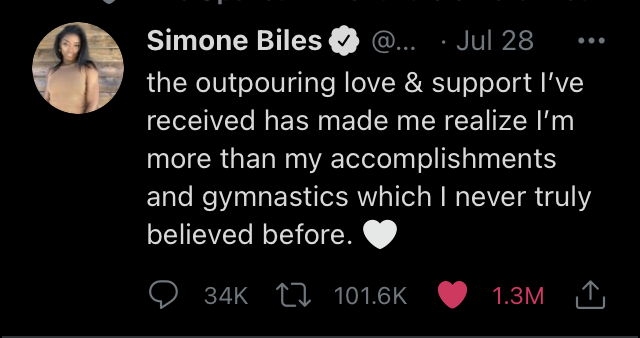
“It’s been really stressful this Olympic Games,” said Biles. “It’s been a long week. It’s been a long Olympic process. It’s been a long year. Just a lot of different variables and I think we’re just a little bit too stressed out, but we should be out here having fun and sometimes that’s not the case.”
What is The Thing?
The thing is the getting up. It’s turning on the computer. It’s the moment you make yourself laugh. It’s buying yourself a feather pen so you have something to smirk about as you start.
That has got to be enough, without any of the other stuff, so that the other stuff can be gravy. Because you just can’t guarantee that other stuff. If you wouldn’t do any of this unless success would make it worth it, I don’t recommend doing it at all.
How often do I fail at living this way? Daily.
But this is why I’ve loved the meditation and writing group we started, A Very Important Meeting. I’m writing this right now, during a session. If I pop over to my Zoom window, I see eight writers, doing their little thing. Hand over mouth, staring. Eyes tracking back and forth, reading. Living as writers.

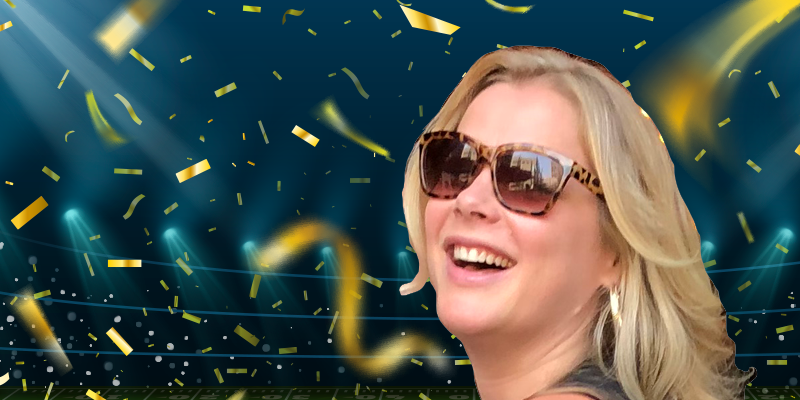
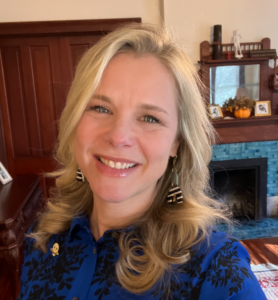
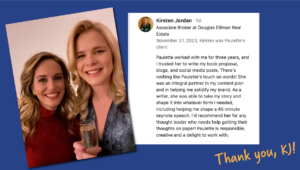
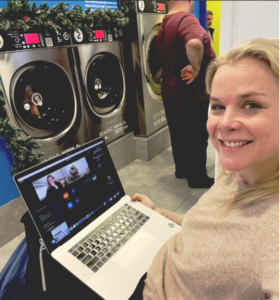
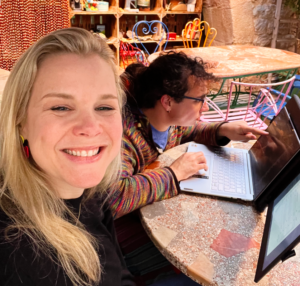

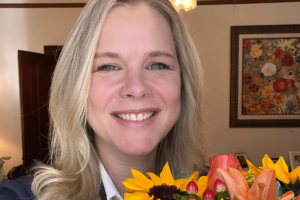
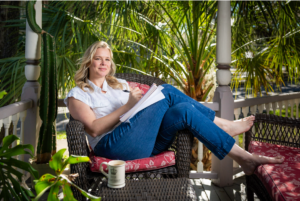
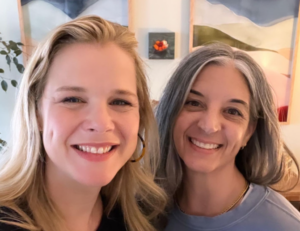
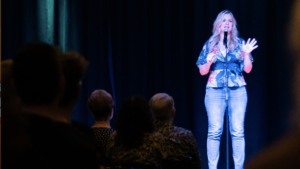

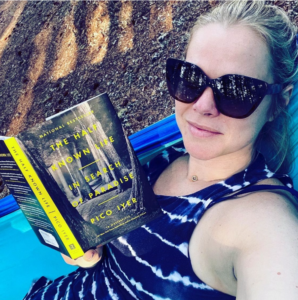
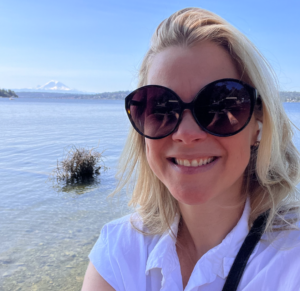
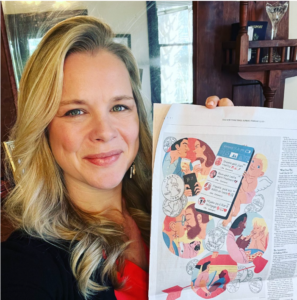
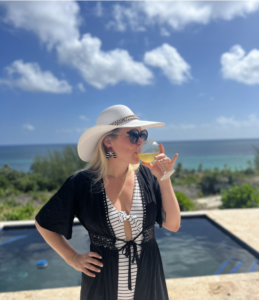


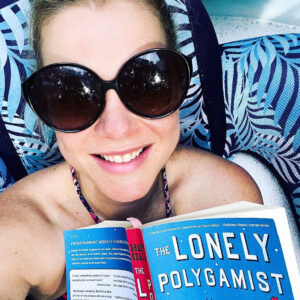
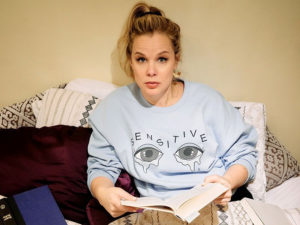
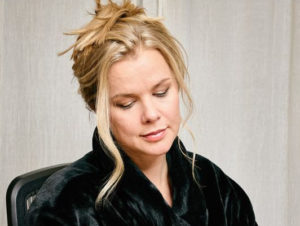

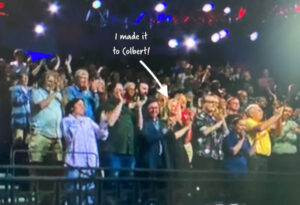

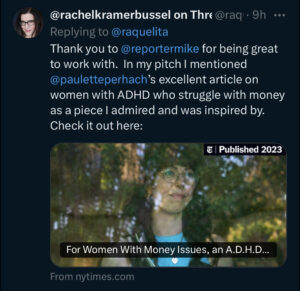
This Post Has One Comment
I loved this blog post, thanks for sharing it Paulette!
Comments are closed.